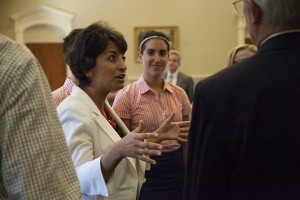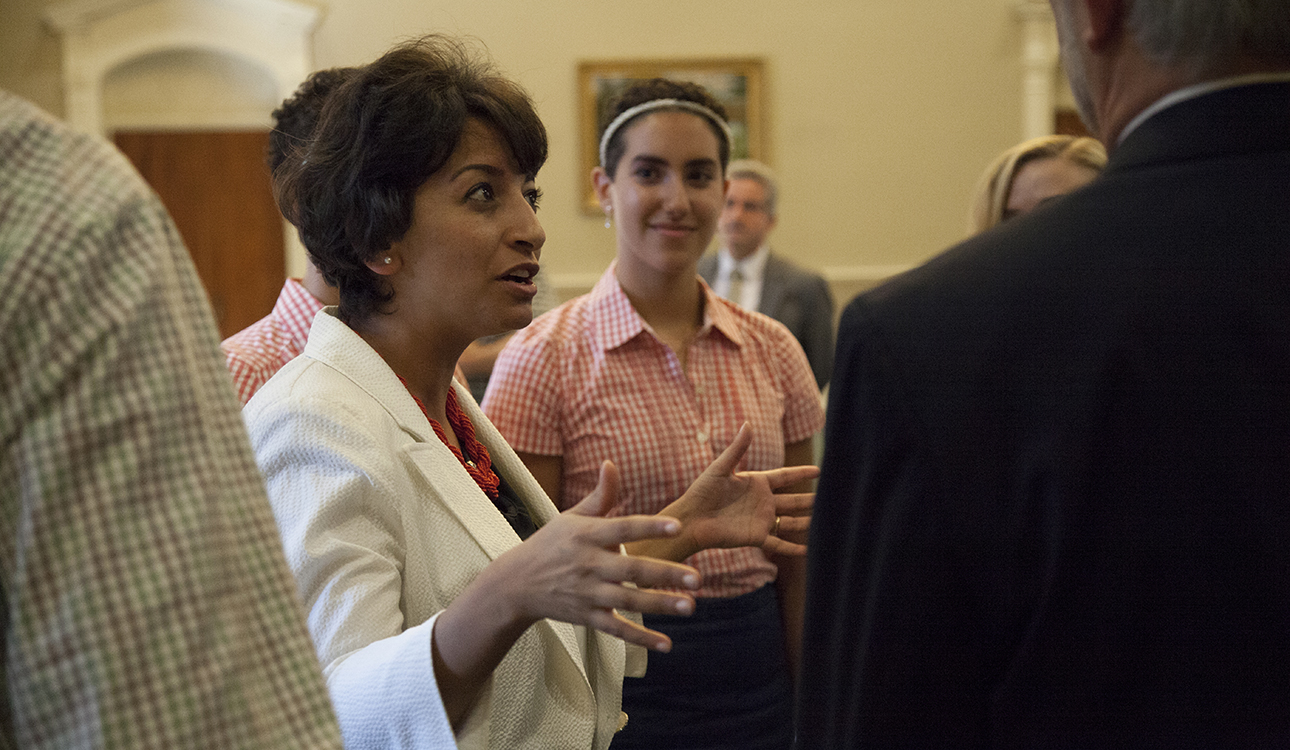
Jon Platt | Reporter
Reporter
For students to help overcome religious persecution, President and Chancellor Ken Starr said they should become educated and get involved to make a difference.
Starr addressed an audience Monday of students, faculty, staff and guests following a panel on religious persecution, where speakers from different faiths discussed acceptance and the future of religious freedom.
“Engage first in awareness,” Starr said. “And then learn the language of fundamental human rights, such as the language set forth in the Universal Declaration of Human Rights. And then become advocates. Become part of IJM. Become part of CHINAaid. Or start your own nonprofit.”
The panel included Rabbi Gordon Fuller of Agudath Jacob Synagogue in Waco, Father Timothy Vaverek of Our Lady of Lourdes Parish in Gatesville and Anne Zaki, professor at Evangelical Theological Seminary in Cairo, Egypt. Baylor’s interim provost, Dr. David Garland, moderated the panel.
Fuller said anti-Semitism has transformed over the years to become politically acceptable. He said it has moved from being about a religion, to being about a people, to being about a nation.
“It’s puzzling to me,” Fuller said. “It’s frustrating to me. But these conversations are important.”
Vaverek, whose Catholic great-grandfather’s house was burned down by members of the Ku Klux Klan in the 1930s, said that religious persecution comes from more than just a hatred of other religions, it comes from fear. Fear, he said, will make rational people act irrationally in order to protect what they find important.
“There are people who love to hate, so let’s set them aside — fortunately, there’s probably relatively few,” Vaverek said. “How do we account for Christians putting sheets over their heads and hanging black people and burning crosses?”
Vaverek’s hypothetical question was later addressed by Dr. Douglas Henry, associate dean of the Honors College. “I whole-heartedly endorse against mere tolerance,” Henry said. “Tolerance is not good enough.”
Vaverek said that when people merely stand by and watch, atrocities happen. He said that being passive and not standing up to injustice might be worse than the act of intolerance itself. To clarify his point, Vaverek referenced the work of musician John Lennon.
“John Lennon invited us to imagine a world in which there was nothing to die for, and no religion, too,” he said. “But, if there’s nothing to die for, what is there to live for? And consider it: people have killed in the name of God, in the name of atheism, in the name of reason, in the name of race, in the name of progress, in the name of economic opportunity, and the name of, well, they’ve actually killed in the name of what sports team they support.”
Zaki, who also spoke at Chapel on Monday, discussed the history of religious relations in her home country of Egypt. She told the story, beginning 50 years ago, of how persecution of Christians became a regular occurrence through political turmoil and unrest.
And now, as peace and order begins to re-enter the country, she said she is hopeful of the acceptance that will follow. But it will take time. Christians, she said, can help further this process through offering love and acceptance. “Let’s open our Christian communities to serve Muslims,” she said. “Let’s throw our bread on the water and see what happens.”
Zaki said panels such as Monday’s serve to help encourage understanding and increase engagement. “We must all be able to talk,” she said. “And from different angles and from different groups.”
For Baylor to help prevent religious persecution from occurring, Garland said the university must model proper discourse in the classroom and encourage students to follow the same values to those outside the university. He also said it is important to be self-conscious in order to be effective.
“One of the things we need to be deeply conscious of is evil in ourselves,” he said. “It’s easy to see it in ISIS, but we need to focus inwardly as well.”






